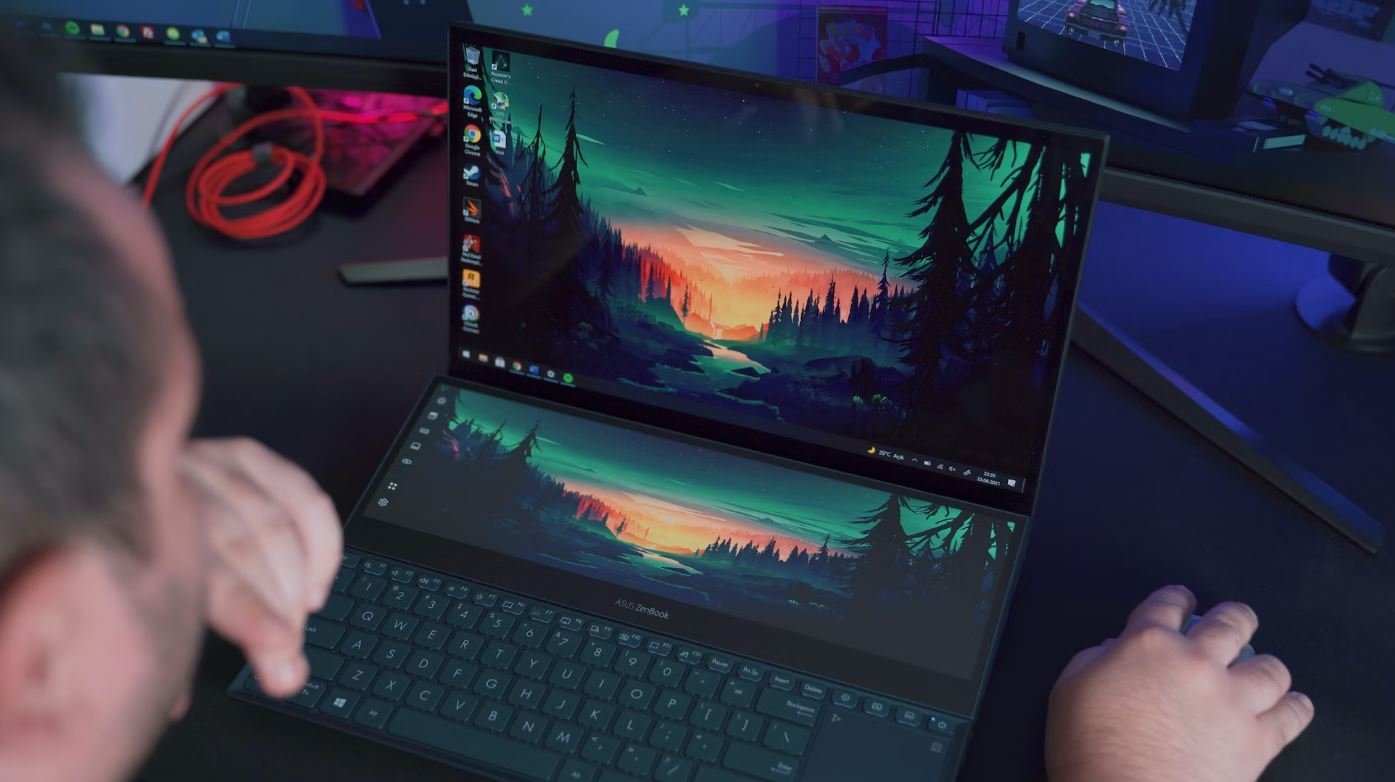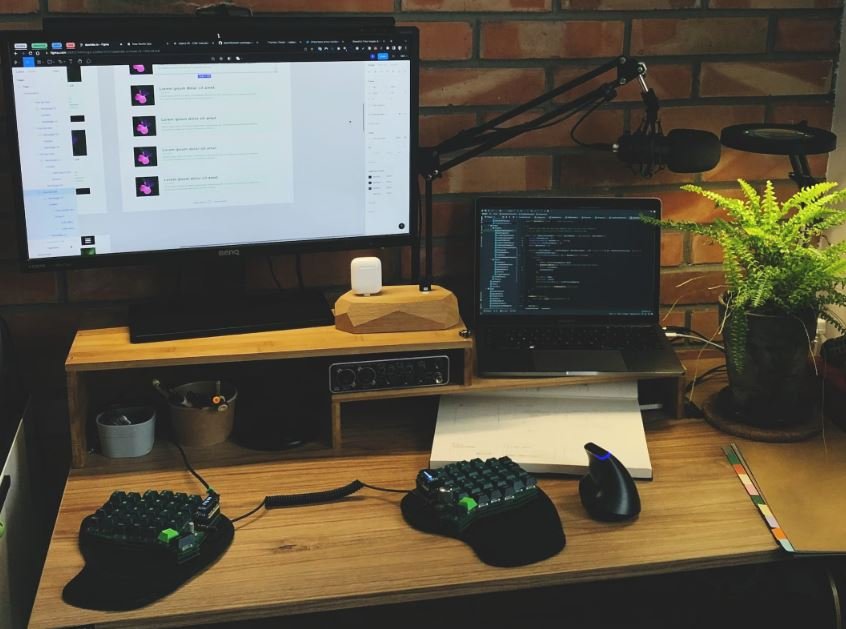What Is Music Production
Music production refers to the process of creating music. It involves recording, editing, mixing, and mastering audio tracks to produce a final musical composition. Music producers, often working in collaboration with musicians and sound engineers, play a critical role in achieving the desired sound and aesthetic of a musical piece. In this article, we will explore the various aspects of music production and the key elements involved in creating high-quality music.
Key Takeaways
- Music production is the process of creating music through recording, editing, mixing, and mastering.
- Producers collaborate with musicians and sound engineers to achieve the desired sound and aesthetic of a musical piece.
- Recording, editing, mixing, and mastering are the primary stages of music production.
- Modern music production often involves the use of digital audio workstations (DAWs) and a variety of software plugins.
The Stages of Music Production
Music production consists of several distinct stages, each serving a specific purpose in the creation of a musical composition. These stages are recording, editing, mixing, and mastering.
In the **recording** stage, musicians perform on their instruments or sing into microphones to capture the raw audio signals. This can be done in a professional recording studio or even at home using portable equipment.
25% of musicians prefer home recording over studio recording due to the convenience factor *and the ability to experiment with different techniques in a comfortable setting*.
Once the audio has been recorded, it moves on to the **editing** stage. Here, producers refine the recorded tracks, making adjustments to correct mistakes, improve timing, and enhance overall performance.
During editing, *producers often utilize advanced editing techniques such as time stretching and pitch correction to achieve the desired sound*.
After editing, the tracks are **mixed**. Mixing involves adjusting the levels, panning, and equalization of each individual track to create a coherent and balanced overall sound. Effects and processing techniques, such as reverb and compression, are applied to enhance different elements within the mix.
The Role of Digital Audio Workstations (DAWs)
Modern music production relies heavily on digital audio workstations (DAWs), software applications that provide a comprehensive set of tools for recording, editing, mixing, and mastering music. DAWs allow producers to manipulate and shape audio in a more precise and efficient manner compared to traditional analog recording methods.
DAWs offer a wide range of features, including virtual instruments, plugins for signal processing, and automation capabilities. They also provide a visual representation of the recorded audio in waveform or MIDI form, making it easier for producers to work with and manipulate the music.
| Popular Digital Audio Workstations | Description |
|---|---|
| Pro Tools | A widely used industry-standard DAW with powerful editing and mixing capabilities. |
| Ableton Live | Known for its real-time performance features and electronic music production capabilities. |
| Logic Pro | An Apple exclusive DAW with a comprehensive set of production tools. |
The Importance of Sound Engineering
Sound engineering plays a crucial role in music production. Sound engineers work closely with producers and musicians to capture, manipulate, and optimize sound during the recording and mixing stages.
The job of a sound engineer involves setting up microphones, selecting appropriate recording equipment, and ensuring optimal audio quality during the recording process. During mixing, sound engineers apply various techniques to enhance the sound and achieve the desired sonic characteristics.
The Final Touch: Mastering
Once the mixing stage is complete, the final step is **mastering**. Mastering involves preparing the final mix for distribution by applying additional processing and fine-tuning the audio to ensure consistent sound across different playback systems.
During mastering, *producers use techniques like equalization, compression, and limiting to balance the audio, bring out certain frequencies, and optimize the overall volume level*.
| Mastering Formats | Pros | Cons |
|---|---|---|
| CD | Widely compatible and familiar format. | Physical media, limited distribution options. |
| Digital | Flexible distribution, easy to share and stream. | Varying quality across different platforms. |
| Vinyl | Analog warmth, large album artwork. | Requires specialized equipment, limited runtime per side. |
Music Production: A Dynamic Field
Music production is a dynamic and ever-evolving field that continues to push the boundaries of creativity and technology. The advent of digital tools and software has opened up new possibilities for musicians and producers, allowing them to experiment and innovate in new ways.
Whether you’re an aspiring music producer or a passionate music lover, understanding the process and art of music production can deepen your appreciation for the craft and enhance your listening experience.
References
- “The Basics of Music Production” by Sound Engineering Academy
- “What Is Music Production?” by Sonic Bloom
- “The Recording Process Explained” by Music Radar

Common Misconceptions
Misconception 1: Music production is only about using instruments
Contrary to popular belief, music production involves more than just playing instruments. It encompasses a wide range of processes and techniques to create and finalize a musical piece.
- Music production involves the use of digital audio workstations (DAWs) and software plugins.
- Arranging and composing music is an integral part of the production process.
- Mixing and mastering are essential to achieve a professional sound.
Misconception 2: Expensive equipment is necessary for music production
Many people assume that only high-end and expensive equipment can be used for music production. However, this is far from true, as there are various budget-friendly alternatives available.
- Beginners can start with a basic home studio setup using a computer, DAW software, and affordable audio interfaces.
- There are numerous free and affordable plugins and virtual instruments available online.
- With the advancement of technology, quality music production can be achieved even on a limited budget.
Misconception 3: A technical background is necessary to produce music
Another misconception is that music production requires a technical background or extensive knowledge of music theory. While technical knowledge can be beneficial, it is not an absolute requirement.
- Many successful music producers have limited or no formal education in music theory.
- Creativity, experimentation, and a good ear for sound are equally important in music production.
- Basic understanding of music theory can be obtained through learning resources available online.
Misconception 4: Music production is a quick and easy process
Some people believe that music production is a simple and quick process. However, it is a time-consuming and meticulous art that requires patience and dedication.
- Arranging, recording, editing, mixing, and mastering can take considerable time and effort.
- Attention to detail is crucial to ensure the desired outcome is achieved.
- Learning and improving music production skills is an ongoing process.
Misconception 5: Music production is only for professionals
There is a common misconception that music production is a field reserved only for professionals. In reality, anyone with a passion for music can dive into music production and create their own unique sound.
- With the accessibility of affordable equipment and resources, anyone can start learning and practicing music production.
- The internet offers a wealth of tutorials, courses, and forums for beginners to gain knowledge and guidance.
- No prior professional experience is required to begin the journey of music production.

The History of Music Production
Throughout history, music production has evolved and shaped the way we listen to and experience music. From the early days of live performances to modern digital technology, each era has contributed to the development of the art. The following table highlights key milestones in the history of music production:
| Time Period | Development |
|---|---|
| 1950s | Introduction of multitrack recording |
| 1960s | Revolution of stereo recording |
| 1970s | Emergence of synthesizers |
| 1980s | Rise of digital recording |
| 1990s | Popularization of home recording studios |
| 2000s | Advancements in computer-based production software |
The Impact of Music Production on the Industry
Music production has not only shaped the way music sounds but has also revolutionized the music industry as a whole. The following table presents key impacts of music production:
| Impact | Description |
|---|---|
| Expansion of genres | Music production has allowed for the creation of new and diverse genres. |
| Increased accessibility | Digital tools and platforms have made music production more accessible to aspiring artists. |
| Enhanced collaboration | Artists can now collaborate on music production projects regardless of geographic location. |
| Democratization of distribution | Streaming services and online platforms have made it easier for musicians to distribute their music directly to audiences. |
Roles in Music Production
Music production involves various roles and responsibilities. Each individual plays an integral part in the creation and fine-tuning of music. The following table outlines different roles in music production:
| Role | Description |
|---|---|
| Producer | Oversees the entire music production process and acts as the creative force behind the project. |
| Audio Engineer | Responsible for recording, editing, and mixing audio tracks. |
| Songwriter | Writes lyrics and composes melodies for songs. |
| Musician | Instrumentalists or vocalists who perform parts in the song. |
| Arranger | Structures the composition and decides on the specific instrumentation. |
The Rise of Digital Audio Workstations (DAW)
Digital audio workstations (DAWs) have become a staple in modern music production, transforming the way music is created and recorded. The following table showcases popular DAWs and their features:
| DAW | Main Features |
|---|---|
| Ableton Live | Live performance capabilities and extensive sound library. |
| Pro Tools | Advanced editing, mixing, and mastering tools. |
| Logic Pro X | Wide range of virtual instruments and exceptional MIDI sequencing. |
| FL Studio | Intuitive interface and extensive plugin support. |
The Evolution of Music Production Equipment
Over time, music production equipment has undergone significant advancements, paving the way for new creative possibilities. The following table highlights notable music production equipment and its evolution:
| Equipment | Evolution |
|---|---|
| Analog Mixer | Transitioned to digital mixers, offering more control and versatility. |
| Synthesizer | Evolved from large, cumbersome devices to compact, programmable units. |
| Drum Machine | Advanced with built-in sequencers and sample libraries. |
| Microphone | Improved in terms of durability, sensitivity, and accuracy. |
Popular Music Production Techniques
Music production involves various techniques that shape the sound and character of a track. The following table showcases popular music production techniques:
| Technique | Description |
|---|---|
| Equalization (EQ) | Adjusting the frequency balance of individual audio tracks. |
| Compression | Controlling the dynamic range of a track by reducing the volume of louder sections. |
| Reverb | Adds depth and ambience to a track by simulating natural echo. |
| Sampling | Using pre-recorded audio snippets in a composition. |
Well-known Music Producers
Music production has seen the rise of talented individuals who have made significant contributions to the industry. The following table features well-known music producers and their notable works:
| Producer | Notable Works |
|---|---|
| Quincy Jones | Produced Michael Jackson’s “Thriller” album. |
| Dr. Dre | Produced albums for numerous hip-hop artists, including Eminem’s “The Marshall Mathers LP.” |
| George Martin | Producer behind numerous iconic Beatles albums. |
| Pink Floyd | Produced their own albums, showcasing experimental production techniques. |
The Future of Music Production
As technology continues to advance, the future of music production holds exciting possibilities. The following table highlights potential areas of development in the field:
| Area of Development | Description |
|---|---|
| Virtual Reality Integration | Enabling immersive and interactive music production experiences. |
| Artificial Intelligence Assistance | Using AI technologies to aid in the creative process and enhance production capabilities. |
| Real-time Collaboration Platforms | Facilitating seamless collaboration between artists and producers across the globe. |
| Advanced Sound Design Tools | Offering innovative tools for sound manipulation and synthesis. |
Music production has come a long way, from the early days of analog recording to the digital age of DAWs and virtual instruments. The industry continues to evolve, with new techniques, technologies, and creative possibilities arising. As music production becomes more accessible, the potential for artists to experiment and create innovative works knows no bounds. With each passing era, we witness the power of music production in shaping the way we listen to and appreciate music.
Frequently Asked Questions
Q: What is music production?
A: Music production refers to the process of creating and recording music. It involves various stages such as songwriting, arranging, recording, editing, mixing, and mastering.
Q: What skills are required to be a music producer?
A: Music production requires a combination of technical and creative skills. Some essential skills include knowledge of music theory, proficiency in using production software and hardware, sound engineering knowledge, and the ability to work with artists and musicians.
Q: What equipment and software do I need for music production?
A: The specific equipment and software needed for music production can vary based on personal preferences and the genre of music. However, common equipment includes a computer, digital audio workstation (DAW), audio interface, MIDI controller, studio monitors, headphones, and microphones. Popular software choices include Ableton Live, Pro Tools, Logic Pro, and FL Studio.
Q: What is the role of a music producer?
A: A music producer oversees the entire creative process of making a song or album. They work closely with artists and musicians, guiding them through the recording process, providing input on arrangements, selecting and editing takes, and ensuring the final product meets the desired artistic vision.
Q: Can I learn music production on my own?
A: Yes, it is possible to learn music production on your own. There are numerous online tutorials, courses, and resources available that can help you develop the necessary skills. However, formal education or mentorship can also be beneficial in acquiring a well-rounded understanding of music production.
Q: What is MIDI, and how is it used in music production?
A: MIDI (Musical Instrument Digital Interface) is a protocol that allows electronic musical instruments and computers to communicate and synchronize with each other. It is used in music production for controlling hardware or software synthesizers, recording and editing MIDI performances, and triggering virtual instruments.
Q: What is the difference between mixing and mastering?
A: Mixing is the process of combining individual audio tracks to create a well-balanced and coherent mix. It involves adjusting volume levels, panning, EQ, compression, and adding effects. Mastering, on the other hand, is the final step of the music production process and focuses on preparing the mix for distribution. It involves fine-tuning the overall sound, optimizing levels, and ensuring the tracks sound consistent and professional across various playback systems.
Q: Can I make music production my career?
A: Yes, music production can be a viable and fulfilling career path. Many music producers work in recording studios, freelance for artists, film, or television projects, or start their own production companies. However, building a successful career in music production often requires dedication, networking, and continuous skill development.
Q: Is it necessary to have a musical background to excel in music production?
A: While having a musical background can be advantageous, it is not a strict requirement to excel in music production. Understanding music theory, having an ear for melodies and harmonies, and being able to communicate effectively with musicians can certainly benefit a producer. However, technical skills and an understanding of production techniques can be developed through practice and experience.
Q: How long does it take to produce a song?
A: The time it takes to produce a song can vary significantly depending on several factors, including the complexity of the arrangement, the availability of the artists and musicians involved, the level of perfection desired, and the producer’s own workflow. A simple song can be produced within a few hours, while more complex projects might take days or even weeks to complete.




